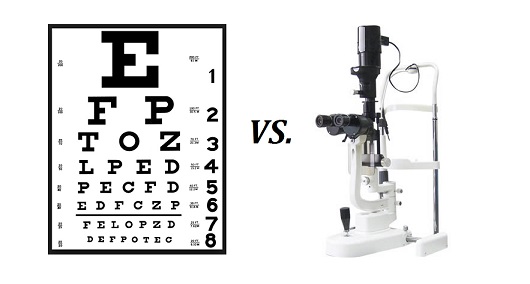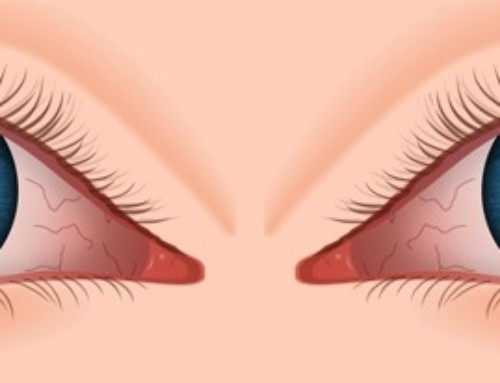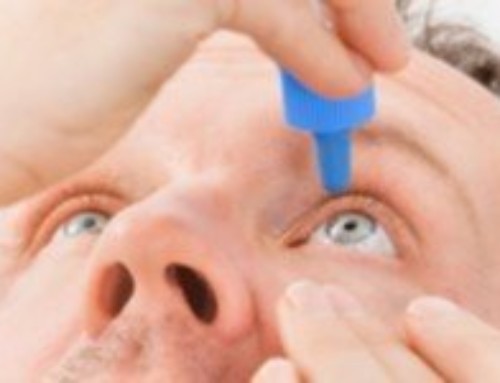What’s the difference between a vision screening and an eye exam?
There is a big difference between a vision screening and an eye exam. A vision screening is very basic and eye exams by Dr. Annie Bacon are very thorough. A vision screening is generally performed by a school nurse or pediatrician. According to American Eye-Q survey, these vision screenings miss 95% of child vision abnormalities. Portland Optometrist Annie Bacon recommends that every child receive their first eye exam by age 2 years old and as early as 3 months. This is the most critical time for vision development in babies. Portland eye doctor Annie Bacon does not believe a vision screening can substitute for regular Optometric vision care. Both adults and children can receive passing marks on a vision screening but still have eye health and vision problems. The only way to rule out any vision abnormalities or identify eye disease is through a comprehensive eye exam. Online refraction services are not a replacement for a comprehensive eye exam by an Optometrist.
Is there a difference between a vision screening and an eye exam?
In contrast to vision screening, a comprehensive eye exam can facilitate diagnosis of visual problems. It involves the use of eye drops to dilate the pupil, enabling a more thorough investigation of the overall health of the eye and the visual system. Eye Department; Eye Care & Eyewear provides full scope medical eye exams in the Goose Hollow neighborhood of Portland that go well beyond simple vision refraction and generally last 45 minutes. You can be confident that Dr. Annie Bacon can provide the best eye care in Portland.
Dr. Annie believes that every patient is unique and deserves individualized care and attention. Healthy vision is more than scoring 20/20 on a school screening or passing the vision test at the DMV, and vision problems are more than the obvious symptoms of needing more light to see. Vision screenings should not be confused with a comprehensive vision analysis by an Optometrist. Key elements of the comprehensive eye exams at Eye Department; Eye Care & Eyewear in Portland includes dilation, tonometry, binocular vision testing, and visual acuity. Dilation allows Dr. Annie to get a better view of the back of the eye. Many diseases can be identified first during a dilated eye exam before being seen anywhere else in the body. The following video by the National Eye Institute showcases what Dr. Annie can see during your dilated eye exam at Eye Department.
[embedyt] http://www.youtube.com/watch?v=M6IlOKXlCqs[/embedyt]
Video developed and provided by the National Eye Institute: https://nei.nih.gov/healthyeyes/eyeexam
The American Academy of Ophthalmology advises parents to seek a comprehensive eye exam when:
- Their child fails a vision screening.
- Vision screening is inconclusive or cannot be performed.
- Referred by a pediatrician or school nurse.
- Their child has a vision complaint or observed abnormal visual behavior, or is at risk for developing eye problems. Children with medical conditions (e.g., Down syndrome, prematurity, juvenile idiopathic arthritis, neurofibromatosis) or a family history of amblyopia, strabismus, retinoblastoma, congenital cataracts or congenital glaucoma are at higher risk for developing pediatric eye problems.
- Their child has a learning disability, developmental delay, neuropsychological condition or behavioral issue.
What are the limitations of a vision screening?
- Untrained personnel running the screening
- Very limited testing
- Inadequate testing equipment
Eye Department is a patient first practice where we strive to provide our patients and clients with an unparalleled eye care and eyewear experience. Eye Department eye exams include screenings for diabetes, glaucoma, macular degeneration, cataract and other systemic conditions that can be seen in your eyes earlier than anywhere else in your body. Dr. Annie is accepting new patients and most insurances.






